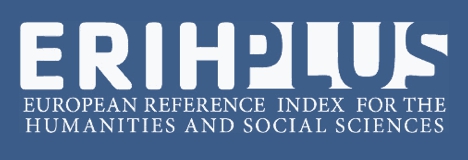School geography in front of religious intolerance: challenges and proposals
Abstract
Conflicts involving religion have become increasingly visible in the international discussion agenda. Several tragic events are constantly motivated, too, for reasons of religious intolerance. There is no denying the relevance of the religious factor to the identity of the nation and the individual, so it is essential to debate to what extent dogmatism and religious fundamentalism are hurting human dignity. The focus of this article is to score the results of the debate on religious intolerance in a secondary school by understanding the student as a religious person (or not) living in a neighborhood where there will also be cases of religious intolerance. It also discusses the guidelines proposed by the school on the subject. Finally, a reflexive and mediated activity is proposed to serve as a basis for discussions and practices of religious tolerance.
References
BEGUOCI, Leandro. Extremismo Evangélico. Super interessante. São Paulo, vol. 31, n. 12 edição 351, p. 28-39, set. 2015.
BRABANT, Jean-Michel. CRISE DA GEOGRAFIA, CRISE DA ESCOLA. In: OLIVEIRA, Ariovaldo Umbelino. Para onde vai o ensino de geografia?. 9. ed. 3ª reimpressão – São Paulo: Contexto, 2010. (Repensando o Ensino).
BRASIL. Ministério da Educação. Secretaria de Educação Média e Tecnológica. Parâmetros Curriculares Nacionais (Ensino Médio). Brasília: MEC, 2000.
CAVALCANTI, Lana de Souza. O ensino de geografia na escola. Campinas, SP: Papirus, 2012. (Coleção Magistério: Formação e Trabalho Pedagógico)
DEBIASI, Miguel. TEOLOGIA DA TOLERÂNCIA: Um modus vivendi cristão. Porto Alegre: PUCRS, 2011. Disponível em:
FELDENS, Priscila Formigheri. PRECONCEITO RELIGIOSO: UM DESAFIO À LIBERDADE RELIGIOSA, INCLUSIVE EXPRESSIVA. Disponível em:
GAARDE, Jostein; HELLERN, Victor; NOTAKER, Henry. O livro das religiões; tradução de Isa Mara Lando; revisão técnica e apêndice Antônio Flavio Pierucci. São Paulo: Companhia das Letras: 2000.
LOCKE, John. Carta sobre a tolerância. São Paulo: Hedra, 2010.
MORAES, Antônio Carlos Robert. RENOVAÇÃO DA GEOGRAFIA E FILOSOFIA DA EDUCAÇÃO. In: OLIVEIRA, Ariovaldo Umbelino. Para onde vai o ensino de geografia?. 9. ed. 3ª reimpressão – São Paulo: Contexto, 2010. (Repensando o Ensino).
OLIVEIRA, Christian Dennys Monteiro de. Sentidos da Geografia Escolar.2. ed. Fortaleza: Edições UFC, 2010.
PONTUSCHKA, N. N.; PAGANELLI, T. I; CACETE, N. H. Para Ensinar e Aprender Geografia. ed. 3. São Paulo: Cortez 2009
SANTOS, Aberto Pereira dos. INTRODUÇÃO À GEOGRAFIA DAS RELIGIÕES. GEOUSP – Espaço e Tempo, São Paulo, Nº 11, pp.21-33, 2002. Disponível em:
SEDUC. Governo do Estado do ceará. Escolas Estaduais de Educação Profissional no Ceará. Disponível em:
SPOSITO, Eliseu Savério. Geografia e filosofia: contribuição para o ensino do pensamento geográfico. São Paulo: Editora UNESP, 2004.
STRAFORINI, Rafael. Ensinar Geografia: o desafio da totalidade-mundo nas séries iniciais. São Paulo: Annablume, 2004.
TALLENTYRE, S. G. [HALL, Evelyn Beatrice]. The friends of Voltaire. London: Smith, Elder & Co., 1906.
ZABALA, Antoni. A prática educativa: como ensinar. Porto Alegre: Editora Artes Médicas Sul Ltda., 1998.
Keywords

This work is licensed under a Creative Commons Attribution-NonCommercial 4.0 International License.
Policy Proposal for Free Access Journals
Authors who publish in this journal agree to the following terms:
a. Authors retain the copyright and grant the journal the right of first publication, with the work simultaneously licensed under the Creative Commons Attribution License which allows the sharing of the work with acknowledgment of the authorship of the work and initial publication in this journal.
b. Authors are authorized to take additional contracts separately, for non-exclusive distribution of the version of the work published in this journal (eg publish in institutional repository or as a book chapter), with acknowledgment of authorship and initial publication in this journal.
c. Authors are allowed and encouraged to publish and distribute their work online (eg in institutional repositories or on their personal page) at any point before or during the editorial process, as this can generate productive changes, as well as increase the impact and The citation of published work (See The Effect of Free Access).





















